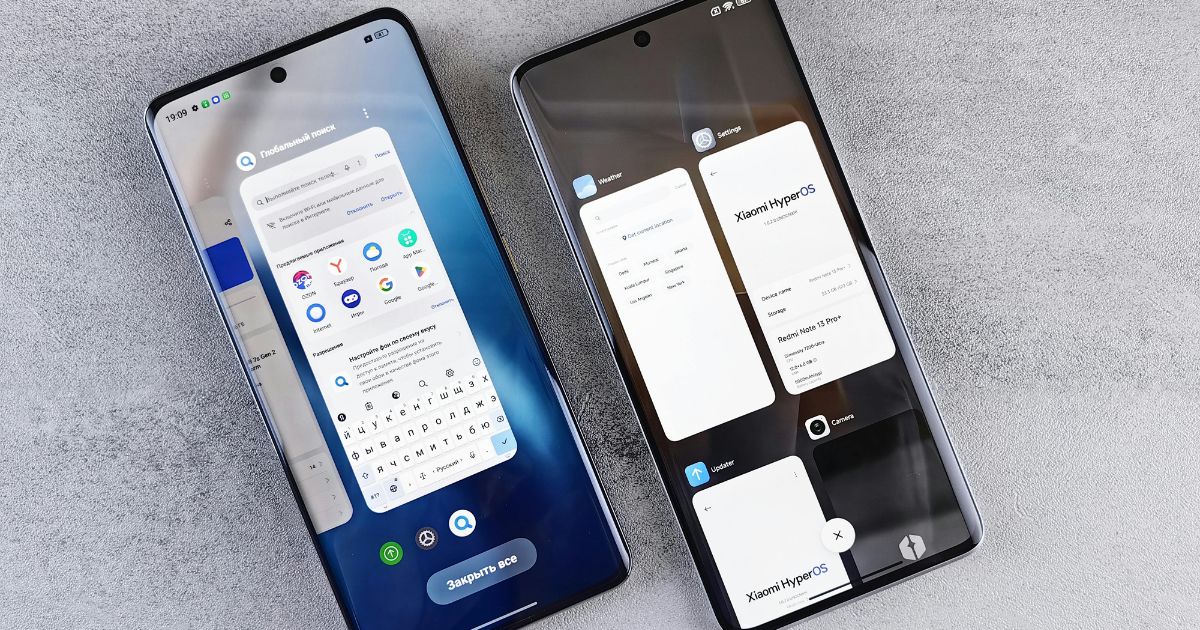Enterprise applications serve as the backbone of large organizations, facilitating seamless communication, enhancing productivity, and streamlining operations across various departments. However, creating an effective enterprise app involves navigating a complex landscape of requirements and challenges.
From scalability and performance to security and user training, the considerations that come into play are vital for ensuring the app not only meets immediate business needs but also adapts to future demands.
This article explores the key factors that organizations must keep in mind when embarking on enterprise app development, equipping decision-makers with the insights necessary to make informed choices for their technology investments.
What is an Enterprise App?
An enterprise app is a software application designed specifically to meet the needs of large organizations. Unlike consumer apps, which generally target individual users, enterprise apps are built to serve the collective needs of an entire organization, supporting tasks like communication, project management, data analysis, and workflow optimization across departments. These apps must handle vast amounts of data and large user bases, providing seamless access and functionality for employees, often in real time.
Key goals include enhancing productivity, streamlining operations, and enabling informed decision-making by providing users with secure, role-based access to critical information.
Because of the complexity of enterprise operations, these apps require robust features, defined security protocols, and the ability to integrate with other software systems within the organization.
Effective enterprise apps are highly scalable, reliable, and flexible enough to adapt to the unique processes and evolving needs of large corporations.
When to Develop an Enterprise-Level Application
A company should consider building an enterprise-level application when its operations reach a scale or complexity that requires a centralized, efficient, and secure software solution. Typically, this need arises when manual processes, generic software, or multiple disconnected applications become inefficient or create risks, such as data security issues or workflow bottlenecks.
Enterprise-level applications are especially valuable for companies with large teams, multi-department operations, or remote workers who need secure, coordinated access to data and tools.
Building an enterprise app is also a smart choice when a company needs to streamline complex workflows across various business units or locations. For instance, if departments like HR, finance, and logistics rely on different software tools, an enterprise app can consolidate these functions, creating a more integrated, user-friendly experience for employees and reducing redundancies.
Moreover, companies in regulated industries with strict data privacy and security requirements—such as healthcare or finance—benefit from a tailored enterprise application that ensures compliance and provides role-based access control.
If the organization is prioritizing growth, efficiency, or security, and requires real-time data insights across departments, an enterprise app is often the best solution for enabling scalability, improving productivity, and supporting long-term goals.
Web Enterprise Apps vs Mobile Enterprise Apps
When developing an enterprise level application, it’s important to decide whether a mobile or web app will be better suited to an organization’s unique needs and usage environment.
Enterprise Mobile App Development
Enterprise mobile app development focuses on creating applications specifically for mobile devices such as smartphones and tablets. These apps are typically designed to give employees access to essential tools, resources, and information on the go.
Because they’re optimized for mobile, they offer features like touch-friendly interfaces, location-based services, and offline functionality, which can enhance productivity for employees who travel frequently or work in the field.
Additionally, enterprise mobile apps may use device-specific capabilities, such as push notifications or camera integration, to streamline tasks and enhance user experience.
Mobile enterprise apps are ideal for organizations with a mobile-first strategy or a workforce that needs remote access to data and tools anytime, anywhere. They are especially beneficial for industries like logistics, healthcare, or sales, where quick, on-site access to real-time information is crucial for decision-making and productivity.
Enterprise Web Apps Development
Enterprise web app development, on the other hand, involves creating applications that can be accessed through a web browser on any device with an Internet connection. Web apps are typically more robust, supporting extensive data processing and integration with other enterprise systems, and can offer detailed user interfaces optimized for larger screens.
These apps are often accessible from both desktop and mobile browsers, making them versatile for employees who may need access in different settings.
Additionally, web apps simplify updates, as changes are made server-side and automatically reflected for all users without needing app store updates.
Enterprise web apps are particularly suited for companies where employees work primarily from desktops or laptops and need to handle extensive data analysis, collaboration, or workflow management.
Web apps are ideal for centralized workspaces, as they can support heavy, complex tasks without the limitations of mobile device specifications, making them an excellent choice for most office-based operations.
5 Key Considerations When Developing Enterprise Applications
When developing an enterprise application, there are several critical aspects to consider. These factors are foundational to creating an app that is robust, reliable, and able to meet the needs of a large organization over time.
1. Scalability
Scalability is crucial for enterprise applications, as they often need to serve thousands of users and manage significant data volumes. A scalable app maintains optimal performance as demand grows, whether that means adding new users, processing more data, or supporting additional features.
Scalability is especially relevant for companies expecting growth, as it prevents the need for costly overhauls when user demands increase.
To achieve scalability, developers can adopt a modular architecture that allows the app to be expanded or updated in segments without disrupting overall functionality. Cloud infrastructure and load balancing are also effective for managing high traffic and can help distribute resources to maintain performance, even during peak usage.
Prioritizing scalability ensures that the application can evolve with the business, supporting growth without sacrificing user experience or efficiency.
2. Performance
Performance is the backbone of a user-friendly enterprise app. If an application is slow, prone to crashes, or unreliable, it disrupts workflows, reduces productivity, and can lead to frustration among employees.
Performance issues can stem from inefficient coding, lack of server capacity, or poor network infrastructure, especially when large numbers of users access the app simultaneously. To avoid these pitfalls, the app should undergo extensive performance testing, simulating various scenarios and loads to identify and address potential bottlenecks.
Regular performance optimization is also essential, as issues may emerge when the app scales up or integrates with other systems.
Choosing high-quality hosting services and optimizing server response times further enhance performance. Additionally, monitoring tools can be implemented to track performance metrics in real-time, allowing the IT team to address any performance dips promptly.
A consistently high-performing app leads to better adoption rates, as employees can rely on it as an integral part of their daily work routine.
3. Security
Security is paramount in enterprise app development, given the sensitive information and proprietary data that the app may process and store. A secure app protects against unauthorized access, data breaches, and potential cyber threats that could compromise both company data and user privacy.
When designing an enterprise app, developers should build in robust authentication and authorization features, ensuring that only verified users can access certain levels of data. Role-based access control (RBAC) is also essential, as it allows for different permission levels based on job roles, providing an extra layer of security.
Encryption, both in transit and at rest, is critical to protect data integrity and confidentiality, while regular security audits and updates help keep the app aligned with the latest security protocols, as cyber threats evolve continuously.
Additionally, compliance with relevant data protection regulations (such as GDPR or HIPAA) is necessary to avoid legal risks. A strong focus on security not only protects the organization but also builds trust, as employees feel safe using the app to manage sensitive data and perform critical tasks.
4. App Training
Enterprise applications are often complex, offering a range of features that support various functions and workflows within the company. To encourage adoption and ensure employees can use the app to its full potential, thorough training is crucial.
Training can be built directly into the app through onboarding tutorials, guided walkthroughs, and interactive help features that assist users as they navigate the app.
In addition to these in-app aids, structured training sessions—either in-person or virtual—can offer deeper insights into how the app integrates with specific job roles.
Some companies may even consider creating a separate training version of the app, especially for highly complex systems, to allow employees to practice without affecting live data.
By prioritizing app training, companies help reduce employee frustration, streamline adoption, and foster a more productive workforce.
5. App Distribution
App distribution is another critical consideration, as it affects how employees gain access to the app and ensures security for internal use. Since enterprise apps are typically intended for internal users, they shouldn’t be accessible in public app stores, where anyone could download them.
Instead, companies often use a mobile device management (MDM) solution or a secure company server to control distribution, allowing employees to access the app through authorized devices only.
Other options include making the app available on the company intranet or through a secure web portal that requires employee authentication.
Alongside distribution, a strategic rollout plan—such as department-by-department introductions, employee emails, and launch events—can increase awareness, encourage adoption, and ensure that employees understand the app’s purpose and benefits from day one.
Choosing a Partner for Enterprise Software Development
Choosing the right enterprise app development company for your enterprise app development project is a critical decision that can significantly impact the app’s success and your organization’s operational efficiency. Here are six key factors to consider when selecting a development partner:
1. Experience and Expertise
Look for a development company with a proven track record in enterprise app development. They should have experience in creating applications that cater to businesses of similar size and complexity as yours. Reviewing their portfolio for past projects can provide insights into their expertise in various industries and technologies.
Additionally, check for certifications or partnerships with established technology providers, as these can indicate a commitment to staying current with industry standards and best practices.
2. Technical Skills
Ensure the development team possesses a diverse set of technical skills that aligns with your project’s requirements. This includes proficiency in the relevant programming languages, enterprise application development frameworks, and the tools necessary for your app.
A good development partner should also be well-versed in cloud solutions, cybersecurity, data management, and integration capabilities, as enterprise apps often require interaction with existing systems and data sources.
3. Communication and Collaboration
Effective communication is vital for the success of any development project. Look for a partner who prioritizes transparency and provides regular updates on the project's progress. Their ability to listen to your needs, ask insightful questions, and provide feedback will help create a collaborative environment that fosters innovation and problem-solving.
A development company that values collaboration will also be more receptive to incorporating your input throughout the development process.
4. Customization and Flexibility
Every organization has unique needs and workflows. Your development partner should be willing to customize the app to align with your specific requirements rather than offering a one-size-fits-all solution. Flexibility in their approach allows for adjustments during the project based on feedback and changing needs, ensuring the final product truly meets your expectations.
5. Post-Launch Support and Maintenance
The relationship with your development partner shouldn't end once the app is launched. A reliable company should offer ongoing support, maintenance, and updates to ensure the app remains functional and secure over time.
Inquire about their support services, including how they handle bug fixes, performance monitoring, and feature enhancements, as well as their response times for support requests.
6. Client Testimonials and Case Studies
Before making a decision, seek client testimonials and case studies that highlight the development company’s ability to deliver successful projects. These insights can provide a clearer picture of their reliability, professionalism, and ability to meet deadlines.
Engaging with previous clients can also reveal how the company handles challenges and maintains client satisfaction throughout the development process.
AppIt’s Approach to Enterprise Level Application Development
At AppIt, our approach to enterprise-level application development is rooted in understanding the unique challenges and goals of each organization we work with. We leverage our extensive expertise to design and build scalable, high-performance applications tailored to meet the specific needs of large enterprises.
Our process begins with a thorough discovery phase, where we collaborate closely with your team to identify requirements and define objectives. This ensures that we create solutions that not only integrate seamlessly with existing systems but also drive operational efficiency.
We prioritize security at every stage of development, implementing robust measures to safeguard sensitive data and ensure compliance with industry regulations. Our agile development methodology allows for flexibility and adaptability throughout the project, enabling us to respond to evolving business needs effectively.
With a track record of delivering successful enterprise applications, we are confident in our ability to help you achieve your objectives. If you’re ready to embark on your enterprise app development journey, contact AppIt today to discuss how we can support you in creating innovative, effective solutions for your organization.








